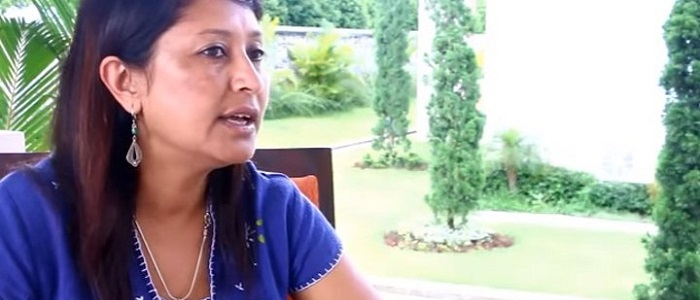
Five Questions with Hasina Kharbhih, Founder, Impulse NGO Network.
Q. Human trafficking is possibly the worst violation of human rights. In your view, how can we stop it?
A. To address human trafficking, we must be able to gather and provide enough legal evidence to put offenders in jail. Very often, the fate of a case depends on how well – or badly – a case is documented. However, documentation is a rather particular skill that not everyone has. The good news is that technology can plug this gap in bringing offenders to book. Case workers and police officers now have access to a systematized way of recording evidence via the Impulse NGO Network’s new, online Impulse Case information Centre Software.
Q. Does the online database focus entirely on information about the traffickers?
A. No. In fact, a case is started from the moment a person goes missing. It’s a very comprehensive system that has enough details in it to help caseworkers work with victims as well as for law enforcement officers to arrest traffickers. The beauty of the system is that authorized officials on both sides of an international border can access the data and update it – or send the entire cache of evidence onward at the touch of a button. This dramatically reduces the time taken for law enforcement officers to act. Also, the sooner the case is activated, the sooner a person can be rescued, and their level of harm or suffering can be reduced.
Q. Where is the new online system being applied?
A. The new system was started in Meghalaya, India, and quickly travelled to other eight northeastern states in the country, where many families – children and adults – are vulnerable to human trafficking. It’s a challenging region, and families are forced to look for work, making it a hotbed for traffickers to operate in. Following a grant from the Global Development Network, we were able to scale it up for use by authorities in neighboring Myanmar, a source location for traffickers. The system has been introduced in Bangladesh, and soon, we may be able to take the system to Nepal as well. The system can potentially be used by all cross-border teams – but for this to happen, we need more international conversations between governments.
Q. Operating a computerized system can’t be without bugs! Have you had any challenges with the system?
We have had no major challenges with the system. It is already being successfully used in northeast India. It has been built on a solid foundation that follows the 6Rs model, to ensure effective reporting, rescue, rehabilitation, repatriation, re-integration and re-compensation. Civil society and law enforcement organizations work on different pieces of each case, and the online system is built to synthesize these efforts to create a comprehensive database that is easily updated and accessed.
We are spending time with key teams in Myanmar, orienting them on how to use the new computerized system since it is a skillset that is learned through practice. We are also making sure that the system is up-to-date, easy to use and that the data on it is safeguarded.
Q. What is next? Will your efforts stop with getting people to start using the new technology?
Ensuring that the system is used on both sides of the border in India and Myanmar is a very significant first step. The online system will be able to demonstrate key benefits – i.e., the speedy recovery of victims and the provision of detailed evidence for prosecuting the offenders. But, merely putting the technology to use isn’t the goal. It would be ideal for the comprehensive system to be adopted into law. The system is based on the current best practices of our time and it would be immensely useful – for victims, law enforcement and case workers – if both governments mandated its use.
I have been working to stop human trafficking for nearly 19 years now and the Impulse NGO Network has collected evidence from over seventy thousand cases. Our success is that not a single case has been re-trafficked. However, we cannot rest as long as this attack on humanity continues.
In conversation with Madhuri Dass, Head of Communications, Global Development Network, in Myanmar, June 2016.
Watch a film about Hasina's work [5 mins]





